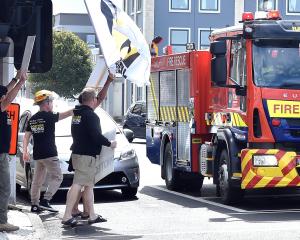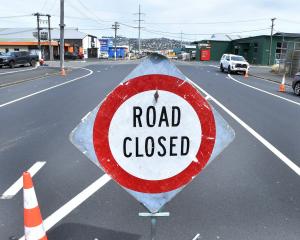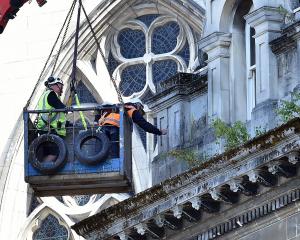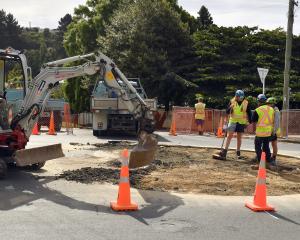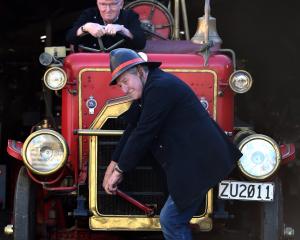The head of beleaguered trucking firm Summerland has rejected claims his employees are pushed to the limit, and says there is nothing wrong with drivers working up to 70 hours per week.
Summerland Express Freight general manager Grant Lowe was speaking yesterday in his first interview regarding the transport company's recent spate of crashes.
Police have investigated three crashes involving Summerland vehicles on southern roads since late last year, and are now investigating a fourth near Gore earlier this month.
A Summerland truck driver, allegedly travelling on the wrong side of State Highway 1, on the Kilmog, north of Dunedin, was stopped and the driver warned by police last week.
The first crash happened on December 22 last year, when a Summerland truck-and-trailer unit went out of control in Pine Hill Rd as it travelled downhill, before rolling on to its side and coming to a halt near the Dunedin Botanic Garden.
An investigation by the police commercial vehicle safety team found the accident was caused by the brakes on the trailer not working correctly because of a mechanical fault.
Mr Lowe said the Pine Hill accident was ``a lesson for us'', and the company had changed its service schedule as a result.
``We were doing drum brakes on a 10,000km cycle so we pulled that forward to 5000km, which actually means for us that in many cases the trailers are serviced every four days.''
It had also begun using a heat-detecting gun to identify issues with the brakes on its trucks and trailers, Mr Lowe said.
However, he made no apologies for the company working its trucks and trailers hard.
``Most of our trucks and trailers are double-shifted, which means our truck and trailer will be used by another driver [after a shift].
``We're pretty well-known by our suppliers for working our gear hard.''
Mr Lowe said the driver involved in the Pine Hill crash was a ``relief driver'', provided by a recruitment agency.
Prior to the crash, Summerland had been assessing the competence of drivers it employed directly, but were ``relying on the service providers that the [relief] drivers were competent''.
Following the crash, Summerland now performed its own assessment of relief drivers, Mr Lowe said.
``We put them in a truck, we have a checklist, make sure they can connect, disconnect.
``We go and check ... how they drive.''
Two Summerland crashes at the beginning of this year were found by police to have been caused by impaired or careless drivers rather than mechanical issues.
The driver in one of the crashes, near Palmerston, was charged with careless and drugged driving, while the driver involved in a crash, near Ashburton, was charged with careless driving.
Mr Lowe said the drivers involved in both crashes, who were Summerland employees rather than relief drivers, had fallen asleep at the wheel.
A source who knew several Summerland truck drivers alleged they were ``pushed to the limit'' by management.
The NZ Transport Agency limits drivers to 13 hours' work per day before they must take a 10-hour break, while 30-minute breaks are also required every five and a-half hours.
Drivers are allowed to accumulate 70 hours of work before they must take a 24-hour break.
Asked if drivers could work 70 hours per week and still remain safe and healthy, Mr Lowe said they could.
``I work probably close to 70 hours a week ... I think I've got a good balance.
``A lot of drivers love what they do.
``They're happiest when they're on the road.''
Comments
it is behaviour like Mr Lowes that required changes to the HSWA.
BTW , WorkSafe are very silent on this, why is that?
Yep nothing like a good/work life balance of a 70 hour week I say. As per managements logic I think the truckies would enjoy themselves more have a happier family life and be safer drivers on the road if they worked 140 hours a week.
Working truck drivers for 70 hours a week - what could possibly go wrong? What happened to having a life, and being alert enough for a dangerous job? This needs to change - for the sake of the drivers - and everyone else on the road.



